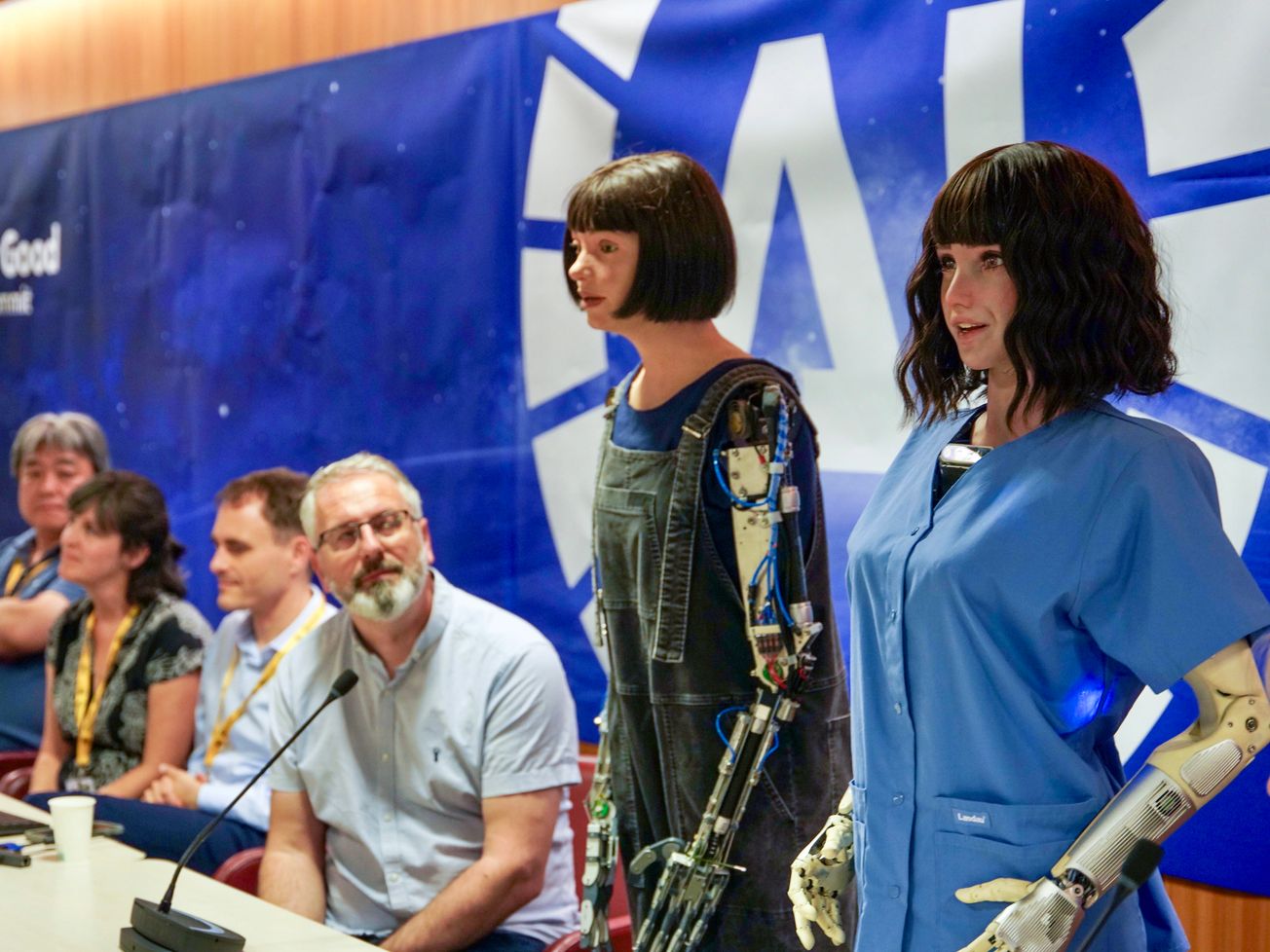GENEVA (AN) — At the world's first robot-human press conference, AI-enabled humanoid robots offered polite reassurances they still know who's boss – but said they could run the world better than flawed humans.
The press conference was a highlight of the United Nations' two-day "AI for Good Global Summit" in Geneva that drew 3,000 experts and wrapped up on Friday. The goal of the summit, co-convened by the Swiss government and International Telecommunication Union, was to find ways of accomplishing the U.N.'s 17 Sustainable Development Goals for 2030.








